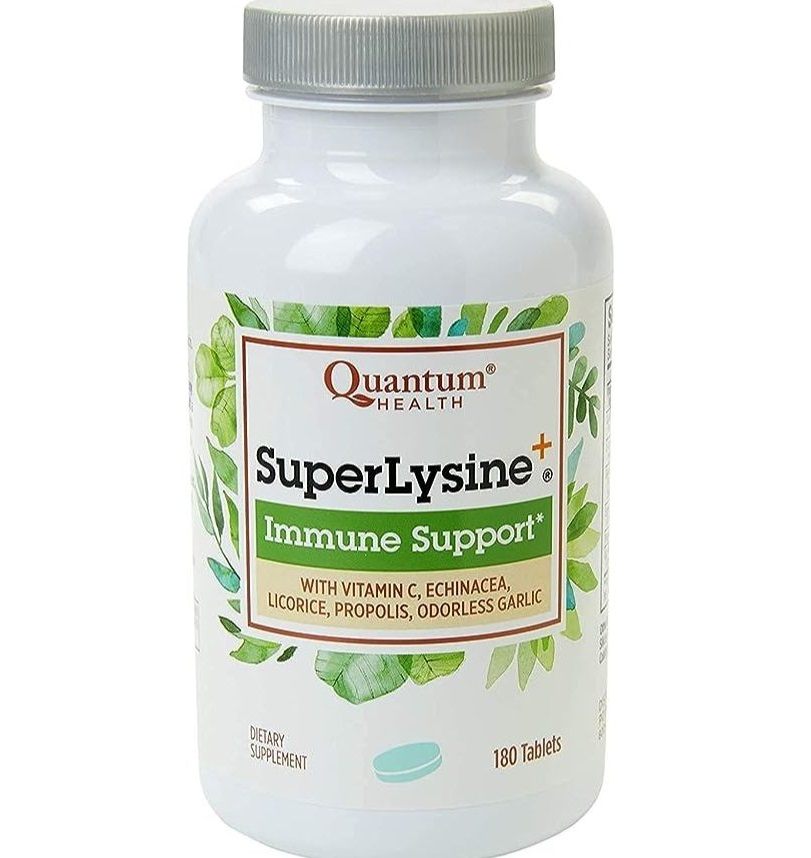Lysine is an amino acid that’s essential for our bodies, but it’s something we can’t make on our own. I need to get it through my diet, and it’s commonly found in foods like meat, fish, dairy, and legumes.
It’s got a whole host of roles, from helping with the production of proteins to the absorption of other essential nutrients. But what’s really interesting is that some people are talking about lysine as if it’s the latest weight gain supplement. That got me curious, so I dug into the research because I want to share accurate information about it.
I’ve always been intrigued by the many claims surrounding diet and supplements, especially with so many folks struggling to manage their weight. With so much noise out there, it’s also difficult to determine what can actually lead to weight gain.
So, the million-dollar question is: Can taking lysine make me gain weight? It’s a simple question, but the answer is not so black and white. I’ll break down the science and get to the bottom of this query without getting caught up in the complexities of nutrition science.
Reader's Roadmap
Key Takeaways
- Lysine is an essential amino acid that we need to obtain through our diet.
- It plays multiple roles in the body, including protein synthesis and nutrient absorption.
- While lysine is not directly linked to weight gain, it’s important in overall nutrition and weight management.
Lysine and Its Role in the Body
As someone who’s always curious about how our bodies work, I find it fascinating that lysine plays such a crucial role. It’s one of the building blocks for maintaining a strong and healthy body.
So let’s take a closer look at what lysine does for us.
Essential Amino Acid Functions
I see lysine as a key player in my body’s health team. It’s an essential amino acid, which means my body can’t make it on its own – I’ve got to get it from food.
Lysine has a hand in producing collagen, which is super important for strong skin, tendons, and even my teeth. It also helps with the absorption of calcium to support my bone health, and it’s vital for growth and tissue repair.
But there’s more! Lysine aids in producing hormones and enzymes, crucial substances that manage everything from my mood to my digestion. It also plays a role in my body’s production of arginine, another amino acid that’s involved in various body functions including immune response.
Sources and Dietary Importance
Now, where do I get this essential nutrient?
Dietary sources of lysine are plentiful. I’m talking meat, eggs, dairy products, legumes, fish, nuts, and seeds.
Since lysine is found in high-protein foods, it’s not usually difficult for me to include it in my diet. It’s like this:
| Food Group | Examples |
|---|---|
| Dairy | Milk, cheese |
| Meat | Beef, chicken |
| Fish | Salmon, tuna |
| Eggs | Omelettes, boiled |
| Legumes | Lentils, beans |
| Nuts & Seeds | Almonds, chia |
Ensuring a balanced diet rich in these foods generally gives me adequate lysine for my body’s needs.
Balance and Lysine Supplementation

But, what if I’m not getting enough from my food? That’s where lysine supplementation might come into play.
Supplements can be an option for those with a risk of lysine deficiency, which could potentially hinder growth, affect muscle mass, and generally throw a wrench into my metabolism and energy levels.
Supplements often come as a protein supplement, and for those who have dietary preferences or restrictions, like my vegan friends, it can help fill in any nutritional gaps.
Still, just like anything, it’s all about balance. I have to make sure I don’t overdo it because, just like deficiencies, excess supplementation isn’t great for my health either.
Weight Management Considerations
In exploring the relationship between lysine and weight, I find it’s important to parse out how this amino acid might influence body weight, what factors play a part in weight gain, and how it all fits within the context of a balanced diet.
Lysine’s Impact on Body Weight
Lysine is one of the essential amino acids that our bodies need for protein synthesis and various metabolic functions. As someone who pays attention to my own protein intake, I know that lysine plays a crucial role in building muscle, which can impact metabolism.
Muscles burn more calories than fat, even at rest, so a higher muscle mass can potentially aid in weight control. However, it’s key to acknowledge that simply taking lysine supplements won’t directly cause weight gain; it’s about how well it’s integrated into a diet that supports muscle building and overall health.
Factors Influencing Weight Gain

When I consider what leads to weight change, I look beyond a single element.
Weight gain is multifaceted, involving caloric intake, energy expenditure, stress levels connected to cortisol, and even sleep.
Stress, for instance, can lead to increased appetite and cravings for sugar, turning my eating habits upside down.
Additionally, if I’m always fatigued, my motivation to exercise may dwindle, leading to a decrease in calories burned. It’s not only about what I eat—lifestyle and psychological factors hold significant sway over my weight.
Healthy Diet and Nutritional Balance
I’ve learned that achieving a nutritional balance is like putting together a puzzle.
It’s essential to combine proteins, fatty acids, and carbohydrates in a manner that satisfies my body’s needs without going overboard on the calories.
Amino acids like lysine should come from dietary sources such as meat, fish, and dairy, as these come bundled with other nutrients essential for health.
I strive for a varied diet because that’s the foundation of healthy eating, preventing any excessive reliance on supplements that might disrupt my body’s balance.






